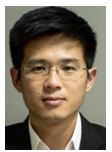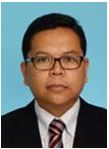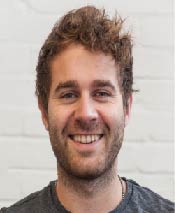CEO & Co-Founder, Garuda Robotics.
What are you building, and who is it for?
Abstract:
Over the last two years of deploying drones across Southeast Asia for clients in traditional industries such as agriculture, infrastructure and security, we have had to overcome challenges in user mindsets, cultures, and expectations of outcomes. I will share the key lessons learned from pushing cutting edge technology into the field, and discuss what it means for technologists looking for ways to make an impact on the world.
Biography:
Mark Yong is CEO and co-founder at Garuda Robotics, a leading developer of enterprise drone and data solutions for the agriculture, infrastructure and security sectors. He has 20 years of experience designing and building robotics systems in domains ranging from urban search and rescue to STEM education. He was previously an award-winning lecturer in the School of Computer Engineering at Nanyang Technological University, Singapore. Mark was trained in computer engineering, computer science, economics and psychology at Carnegie Mellon University (BS/MS) and the University of Michigan (MS).

Electrical Capability Group (ECG) , Singapore Advanced Technology Center, Rolls- Royce Singapore Pte. Ltd.
Challenges for Electrical Power Engineer in More Electric Technology
Abstract:
More Electric Technology is a trend in industries today. This technology is implemented by replacing fully mechanical system with hybrid system. The hybrid system combines mechanical and electrical system together to obtain higher efficiency, more flexibility, and environmental friendly application. Power electronics which is part of electrical power engineering is playing a key role in More Electric system. The electrical power engineer has to have enough expertise in power electronics to fulfill industry needs.
This presentation will present the implementation of More Electric Technology in industries and discuss the capability that a power engineer needs to have. As some of these capabilities are not covered in engineering course, they need to be acquired through self-learning process.
Biography:
Dr. Rejeki Simanjorang (SM’16) was born in Tanah Karo, Indonesia. He received his B.Sc., M.Eng. and Dr.Eng. degrees in Electrical Engineering from University of Sumatera Utara (Indonesia, 1998), Bandung Institute of Technology (Indonesia, 2002) and Osaka University (Japan, 2008), respectively. He was a researcher in National Institute of Advanced Industrial Science and Technology (AIST) and R&D Partnership for Future Power Electronic Technology (FUPET), Japan from 2008 to 2013. Currently, he is working in Electrical Capability Group (ECG) – Applied Technology Group (ATG), Rolls-Royce Singapore. He is leading some collaboration research projects between Rolls-Royce Singapore and external partners. His main research focus on application of power converters, design of high power density converters, power electronics packaging and Electrical Health Monitoring (EHM) for power electronics system.

Manager/Career Advisor at Centre for Future-ready Graduates (CFG), National University of Singapore.
Career options beyond
Abstract:
The academic career path has for long been the default option for PhD degree holders, but the times are changing: due to the decreasing number of academic positions PhD students have to consider options beyond the typical career path.
The PhD students I have met for career coaching usually have two major concerns: Does a PhD degree equip me with the skills that required in the private sector? And how to showcase those skills when I’m applying for non-academic positions?
Corporate organisations do put more and more emphasis on so called soft skills, even in technical roles. In the times when machines do replace humans in a wide variety of roles, the employers do value skills that artificial intelligence and machine learning can't replace. The recruiters are in the search for candidates who can be placed in customer-interfacing roles and are able to effectively communicate with the members of their own team as well as the external parties. Similarly, team work experience is valued by more or less every employer. PhD studies do make it possible for you to gain these skills, and the skills need to be found in your resume when applying for industrial positions. That is why it is extremely important for you, a graduating PhD student, to identify the skill sets required for the roles you are interested in. Equally important it is to learn how to highlight those key skills in your resume.
Biography:
As a Careers Advisor at Centre for Future-ready Graduates Sanna is coaching postgraduate students from the STEM faculties. She is passionate about empowering students and helping them discover their strengths and interests. Sanna strives to help them to navigate through their options in career paths and guide them towards the right career decisions and development. She sets herself the challenge to be of the utmost assistance for each and every student she meets. Sanna advises students on their career preparations such as resume and cover letter writing and helps them to excel in their job interviews. After pursuing her Master’s degree in Biochemistry Sanna completed another degree in Pharmacy. Before joining NUS she spent over ten years working in academic research and the private sector in both Finland and Singapore.

Director of Entrepreneur First Singapore
How to start your own deep tech company and commercialise your research?
Abstract:
TBA
Biography:
Alex Crompton is a programme director at Entrepreneur First, structuring the programme and helping the teams reach the EF community. Prior to joining Entrepreneur First, Alex joined worked in finance and engineering consultancy in Tokyo, having earlier started sales for a new, Oaktree Capital backed, property company in London. He runs our City to Startup meetup, and graduated from Queen’s University Canada and Warwick University. Alex is interested in effective altruism, industrial applications of machine learning, and human computer interaction.
About Entrepreneur First:
Entrepreneur First is the world's leading company builder. Entrepreneur First invests in top technical individuals to help them build world-class deep technology startups from scratch in London and Singapore. Entrepreneur First helps you find your co-founder and commercialise your technology on our intensive programme to give you the best possible support in the first years of your startup’s life. Since 2011, Entrepreneur First have created over 100 startups worth over $400m including Magic Pony Technology, Tractable, StackHut, Pi-Top, OpenCosmos, Status Today and Cloud NC.
